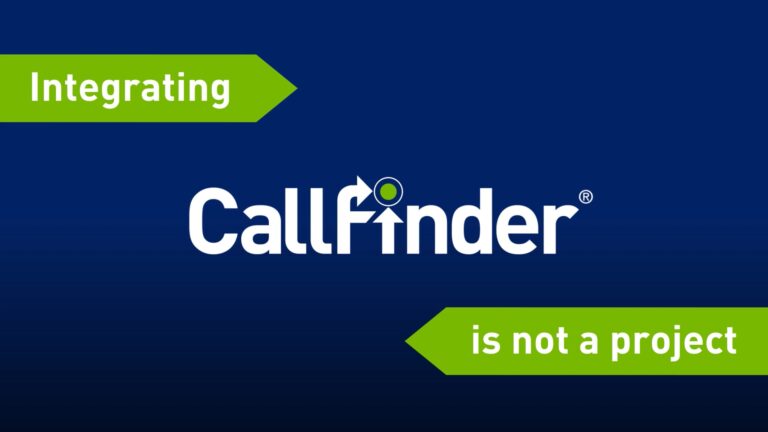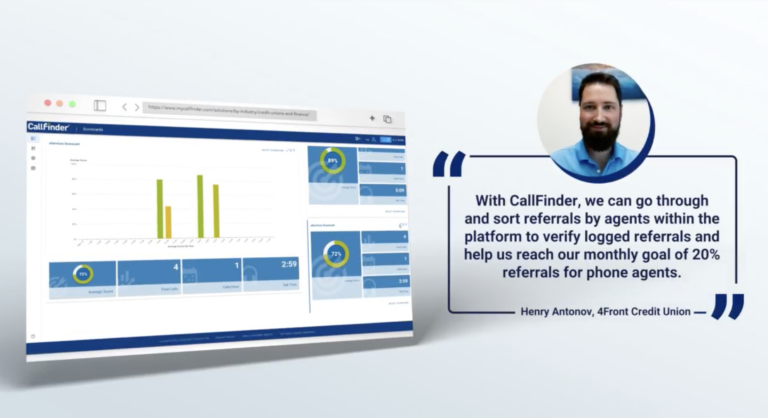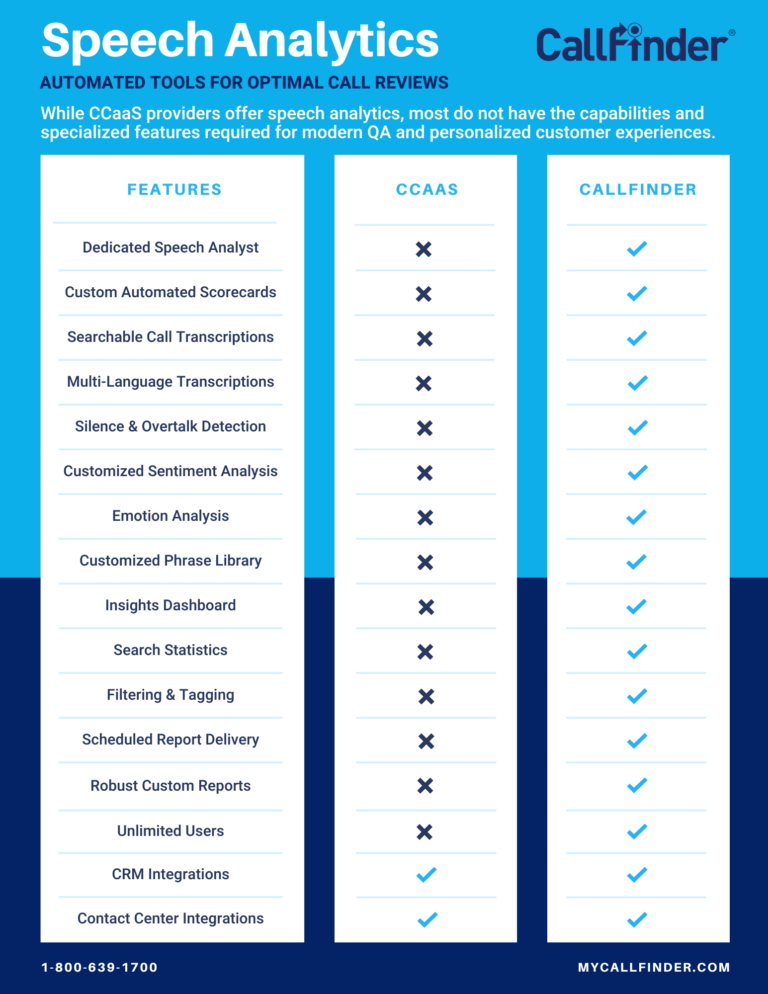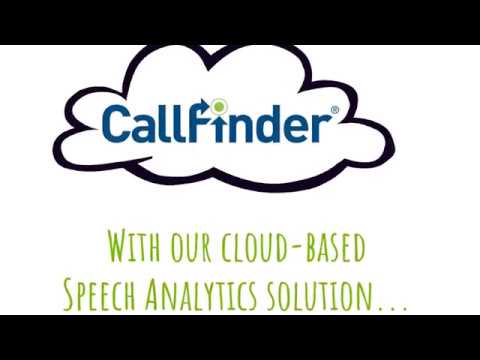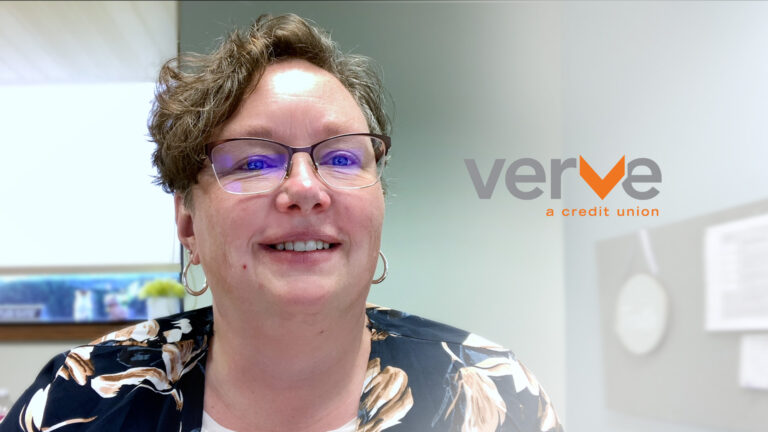One in three Americans has a past-due payment in collections today. As a nation, we rank 10th in household debt, owing trillions of dollars on medical bills, mortgages, student loans, and credit cards. Yet while people are carrying more and more debt, securing payment on them is easier said than done. Collections agencies successfully recovered just 36.7% of debt in 2017, while consumers filed 5,229 complaints and 1,352 lawsuits against debt collectors in March of 2018 alone. To shift these statistics, debt collection agencies are desperately looking for new ways to improve the collection process.
Improving the Collection Process with Speech Analytics Technology

Call centers are increasingly turning to speech analytics technology to understand what works in a collections call, and what doesn’t. By automatically searching, categorizing, and scoring every agent conversation, speech analytics software makes it possible for collections agencies to learn precisely how to adapt their training and best practices. This accomplishes two main goals: 1. Keeping customers happy, and 2. Ensuring that employees are in full compliance.
Here are a few ways speech analytics technology can help collections businesses meet the call center’s most pressing challenges and improve the collection process.
Helping Agents Stay on Script
Any time collections agents interact with customers, they must stay within the bounds of a number of federal regulations designed to curtail aggressive tactics and speech. Here are some of those regulations that agencies must consider as part of their script compliance policies:
- The Fair Debt Collection Practices Act (FDCPA) protects consumers from abusive, deceptive, and unfair debt collection practices. For example, agents must identify themselves and state their purpose in every call; they also cannot lie, harass or threaten customers, call before 8am or after 9pm, or call them at work without permission.
- The Fair Credit Reporting Act (FCRA) controls how debt collection efforts appear on credit reports.
- The Telephone Consumer Protections Act (TCPA) covers auto-dialing, pre-recorded calls, and calls to mobile numbers.
- The Health Insurance Portability and Accountability Act of 1996 (HIPAA) regulates how Protected Health Information in medical records is protected at rest and in motion.
- The Payment Card Industry Data Security Standard (PCI-DSS) specifies how credit card data must be protected and in which conditions it may be stored.
- State laws often closely follow – and expand on – federal regulations, posing a challenge for collections agencies that operate in multiple states.
- Sidestepping these regulations exposes companies to significant financial and legal risk – as, for example, in the case of the agent who attempted to collect on a $25 medical bill by calling a customer 69 times in two months. Instead of payment, he earned a $34,500 TCPA judgement against his employer, along with an FDCPA claim for damages that’s still in litigation.
- Speech Analytics and Regulatory Compliance
- To make sure agents are consistently following the law, collections companies require them to follow compliance scripts, such as the Mini Miranda script. These policies help ensure that agents are contacting the right person about the right debt and consistently using legally-required language while avoiding words and phrases that could trigger complaints.
- Speech analytics dramatically improves compliance by automatically mining calls for specific phrases and patterns, such as abusive language, calls made too often or at inappropriate times, or initial calls that don’t include the Mini Miranda script.
- The software then categorizes these calls for review, so managers can quickly address emerging issues before they escalate. Managers can then use those calls as real-world examples in compliance training, so agents can learn to handle challenging situations more effectively.
- Speech analytics should help call centers stay compliant by redacting authentication data, restricting access to customer data, and scrubbing credit card information from calls. Call data is securely recorded and archived by the software, making it available as needed to resolve disputes or provide evidence in court. This alone can improve the agency’s collection process because it helps prevent expensive lawsuits and fines.
- A good solutions provider should also help companies implement their technology, create and refine initial searches, train managers on the system, and provide ongoing support.
- Get Complete Insight into Performance
- In call centers where agents make thousands of calls per day, managers typically have to rely on random call sampling to monitor for quality and performance. Using this approach does not guarantee that managers will listen to the calls that provide the best insights.
- For instance: calls in which an agent may be struggling – or in which someone is doing particularly well. In either case, random sampling causes managers to miss opportunities for early intervention and coaching, as well as for rewarding exceptional work. As the call center expands, manual call monitoring becomes more ineffective and difficult to scale, which in turn creates greater risk.
- Mitigate Risk with Agent Scorecards
- Speech analytics technology that utilizes call scoring and agent scorecards provides an even more efficient way for managers to monitor performance and mitigate risk. Once the speech analytics software has searched and cataloged every conversation, it will automatically generate scorecards for both agents and teams. By customizing searches and categories, managers can drill down into the metrics that matter to them the most, including the following:
- Script compliance indicators:
- Whether agents introduce themselves and state why they are calling
- Whether they verify a customer’s identity before disclosing sensitive information
- Whether agents provide accurate information about balances, due dates, and payment plans
- Traditional call metrics:
- Average Handle Time (AHT)
- Customer Satisfaction scores (CSAT)
- First Call Resolution rates (FCR)
- Call quality measures:
- Word separation and clarity
- Pacing and volume
- Phrases indicating an issue, such as “I’d like to speak to your supervisor”
- Positive phrases from the customer, such as “Thank you”
- These detailed, consistent scorecards remove subjectivity from evaluations and help managers pinpoint exactly where agents should improve. They also empower managers to “catch employees doing something right” by highlighting particularly successful calls that can be used as good models for success.
- Fine-tune Training and Boost Morale
- Developing better agent training tools has a direct impact on improving the collection process. When agents don’t understand how to improve their work, it can create a number of problems for the business. One key issue is noncompliance risk, but another – and one that’s arguably just as critical – is agent attrition.
- When agents quit in frustration, call centers don’t just lose employees. They lose their training investment in those people as well, and experience lower productivity and higher costs because of the time it takes to recruit, onboard, and train replacements.
- With automated monitoring and scoring, busy managers can more easily identify the agents who may need additional coaching – and because they’re not constantly monitoring calls, they have more time to help those agents succeed.
- They also gain valuable insights into how to design effective training tools that can help agents comply with regulations, deal with difficult conversations, and develop the knowledge and skills to help customers resolve their payment challenges.
- As a result, agents become better at their jobs and can work in an atmosphere of friendly competition. They may also be more likely to stay with an employer that they trust will create the opportunities they need to improve and succeed. Speech analytics and call scoring should be part of every debt recovery agency’s collection process.
- Cultivate Loyal Customers
- It’s probably safe to say that no one enjoys a collections call. But when customers pick up the phone, they expect the same kind of professionalism, personalization, and expertise they get from companies like Amazon or Uber. For that reason, it’s crucial for agents to remember that they represent a client’s company when they place a collections call.
- The way agents interact with a customer – whether they are empathetic and collaborative, or shaming and aggressive – may well create the first and last impression of a particular brand. The quality of that experience can determine how customers review a company on social media and whether or not they will bring their business back.
- Collections agencies using speech analytics can offer their clients valuable insights into customer needs and preferences, giving them the tools to improve billing practices and payment plans. In these cases, identifying patterns of frustrations may be particularly helpful. Customized searches can also help clients understand other areas of the business, such as how well marketing campaigns or promotional offers are working.
- Transforming the Future of the Call Center
- Collections agencies using speech analytics gain a powerful tool to mitigate risk, collect more debt, improve the customer experience, and transform the collection process for a successful future. They also gain the power to help their clients safeguard customer data and privacy, streamline confusing billing practices, ensure customer loyalty, and build their brands – all of which will help call centers take a central place in the larger omnichannel customer experience.
- To learn more, download this white paper:
- “Navigating Challenging Conversations In The Collections Industry With Speech Analytics.”

